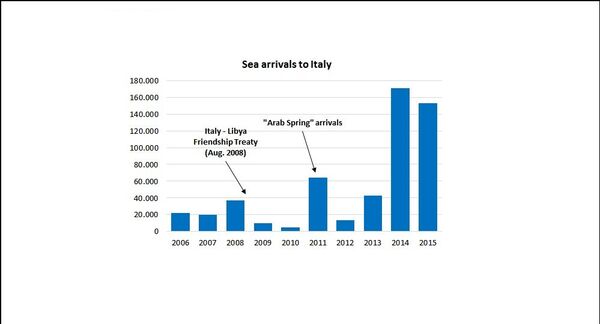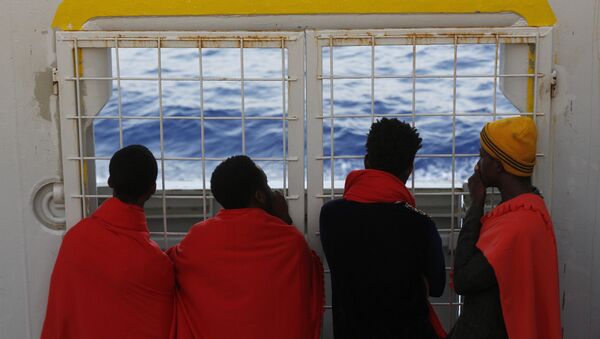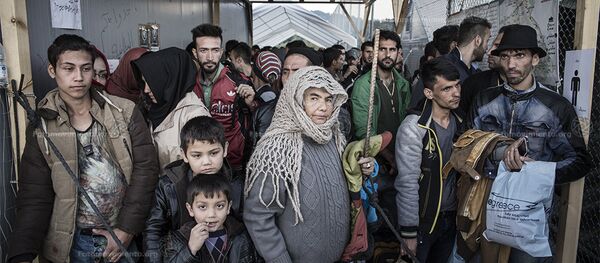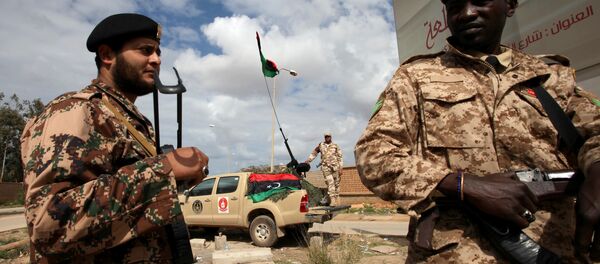Following the closure of the Western Balkan route and a deal stuck between the EU and Turkey to deport migrants arriving on the Greek shores of the Aegean Sea, refugees have been forced to re-route and in the past few days, the Libyan coastguard has intercepted 850 people in boats destined for European shores. The refugees, mainly from African countries were found in seven inflatable boats near Sabrathra, west of the capital Tripoli.
Already in 2016, 4650+ kids have transited through #Libya and crossed the #Mediterranean sea to #Italy alone. pic.twitter.com/sqsHCuBKzk
— MSF Sea (@MSF_Sea) May 18, 2016
Italy's foreign ministry recently revealed that it was considering renewing a 2008 accord that was agreed between former Italian Prime Minister Silvio Berlusconi and ex-Libyan leader Muammar Gaddafi in which Italy pledged billions of dollars in investment in return for energy contracts and control over illegal migration from North Africa.
"The Treaty of Friendship, signed in August 2008, paved the way for more stable co-operation between the two countries, especially in sectors of more recent interest such as immigration," Dr Arturo Varvelli, head of terrorism research at Italian think tank, Institute for International Political Studies (ISPI), told Sputnik.
'Important and Effective'
The "friendship pact" was mooted by Mohammed Siyala, Libya's foreign minister in its new UN-backed unity government and Italian foreign minister Paolo Gentiloni.
"The two ministers talked about the possibility of reactivating the tools set out in the 2008 friendship pact as soon as possible," Italy’s Foreign Ministry said in a statement.
In 2010, Libya was Italy's biggest oil supplier and its third biggest natural gas supplier, Dr Varvelli explains.
"During the 80s and 90s Italy remained Libya's only true western reference point, reinforcing its complementary function in the Libyan economy. Italy and Gaddafi's Libya enjoyed a privileged relationship for forty-two years during the Gaddafi period," Dr Varvelli told Sputnik.
Libya remained stuck in a civil war leaving it wide open to exploitation by Daesh militants – and people smugglers.
In November 2015, WikiLeaks republished cables revealing warnings from Gaddafi that the NATO-led invasion was "bombing a wall which stood in the way of African migration to Europe and in the way of al-Qaeda terrorists."
A leak from #WikiLeaks concerns Gadaffi in 2011 calling the Nato about illegal migration and terrorists.#libya pic.twitter.com/pAA3wO3mGX
— Mohamed Al Rwemie (@Rwemie) November 19, 2015
More than 30,000 migrants have already arrived in Italy this year from Libya, and as the summer approaches and sea conditions calm down, that number is expected to surge with more people attempting the dangerous sea-crossing to the island of Lampedusa in Italy.

The request for "rapid EU support" to train Libya's Navy Coast Guard and security services, "is an important development that I will discuss with ministers," Federica Mogherini said, suggesting a Libya-EU deal could be struck by the Italian politician.




